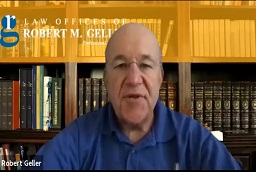Search Engine Optimization (SEO) can be improved to no end if paying attention to the ways in which internet users use search engines in order to search for information via the Internet. There are a number of ways of classifying the different styles of searches undertaken by internet users on the Internet and five of the most common of these searches have been selected and highlighted in this article.
By studying the following search styles and then comparing this knowledge with what you already know about your website (who it is for, who might be looking for it and why, etc.) you can begin to improve the optimization of your site that little bit further. In addition, keyword use and keyword selection can also be optimized further when taking into consideration the various types of Internet searchers trying to find particular pieces of information.
Therefore, make a cup of coffee, sit back and take a good look at the different kinds of internet users out there who may well be potential visitors to your site once you begin paying more attention to the type of searchers that they are
Navigational Searcher
The navigational searcher is looking for a specific website or webpage within a website. Therefore, they are liable to use a specific keyword from the URL in their search inquiry. Normally, with a navigational search, the user can remember the URL to some degree, but not entirely and therefore he or she aims to locate the page via the search engine. How well optimized is your URL in terms of keywords? This is an important question to consider at this point because the relevance of your URL could really help when an internet user is trying to remember the keywords in the URL in order to find your site again.
The navigational searcher category can be broken down further into two more sub-categories. For example:
Known Item Searcher
The known item searcher is already aware of the website or website page that they are looking for. They have most likely visited the site beforehand and have already liked what they’ve seen. They are the type of searcher who can only remember a little of the URL or name of the site they are looking for. They use this information to browse through the different search engine searches, playing around with keywords that for some reason they remember
This is perhaps when broad match keywords can be useful to a website or when phrase match keywords might also need some attention. Make sure that these keywords are well optimized to allow someone, who is trying to find your website, locate you within the first two attempts. If this user doesn’t find your website within the first two attempts they will probably become sidetracked by another site which seems to offer what they are looking for anyway. Suddenly, your site has been forgotten about and you have lost some potential traffic and conversions.
Named-Page Searcher
In a very similar way, the Named-Page searcher knows the website or website page that they are looking for. They know that the domain exists, but choose to find the site by entering keywords into the search engine search bar rather than typing the URL into the browser.
In Known-Search, the searcher knows that the site exists, but they cannot remember the URL and so they are relying on the search engine to help them find the site through keywords. However, in the case of a Named-Page searcher, the internet user knows what the URL is but prefers to put the name of the site into the search engine search bar instead.
This may be because they are on a computer in a cyber cafe or they are using a friend’s computer and therefore the URL is not remembered in the browser they are using unlike their computer at home. In this instance, typing the entire URL into the browser just seems to be a lot of unnecessary effort. Typing the name of the site into the search engine search bar is simply much, much easier. Humans are lazy by default in general. Utilize this understanding when thinking about optimizing your website.
Ensure that the URL plays an important role in the keyword optimization of your site. Avoid alienating the named-page search users. These are the users who know your site well, are loyal to your site and want to come back time and time again without having to type the entire URL out every single time.
Informational Searcher
The informational searcher is looking to do some research. This internet user is not looking for a particular site specifically. They are looking to do some background research. They are looking to find out what they can about a topic and to see what there is about the subject in general. They are putting the feelers out and having a good hunt around.
Highly optimized keyword sites can generate excellent success and recruit extra regular traffic for any website from this group of informational searchers. Logically, if someone is searching around for a topic, they are open to finding something new. Indeed, that is the focus and objective of their search in the first place. They want to find something new, something that is going to give them the answers to the questions that they have. If they find a website that gives them more than what they were hoping for, they are bound to remember it or bookmark it to come back to at a later date.
Optimize those keywords well so that when an informational searcher is on the prowl, you can hook them and reel them in effectively via your keyword bait. Get the metaphor?
The informational searcher can also be filtered down into an even more specific search category too:
Ad-Hoc Searcher
The ad-hoc searcher is a strand of the informational searcher. They are the internet users who are scouring the internet for as much information as possible. They have no leads, other than keywords, and are the searchers who are most open to anything. Therefore, in some ways, they are the easiest fish to catch.
Transactional Searcher
The transactional searcher is the one who is looking to buy something. If you have something to sell online, your keywords really must reflect this fact. If they don’t then you are seriously missing out on a huge pool of potential conversions. Think about whether your product is of a particular group. For example, are your products “cheap” or are they “luxury”? Are your products available to buy in particular countries only or are they “worldwide”? Maybe you sell products that are “tax free” or “organic”? Think about the specific nature of your product and use both positive and negative keywords carefully in order to successfully tap into the transactional searcher remit.
Understanding the types of searchers that use the Internet every day to look for information or to carry out specific tasks is essential to the keyword optimization of a website. The information in this article may seem pretty basic on the surface, but it is also incredibly valuable, as lots of very basic information normally ends up being either lost, forgotten or ignored.
Enjoy the benefits available from bearing this information in mind and get optimizing those keywords as quickly as possible.



















